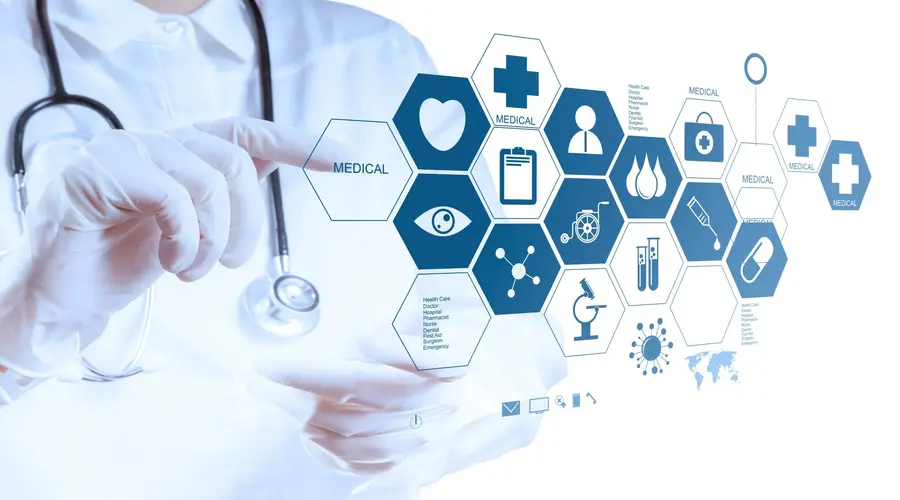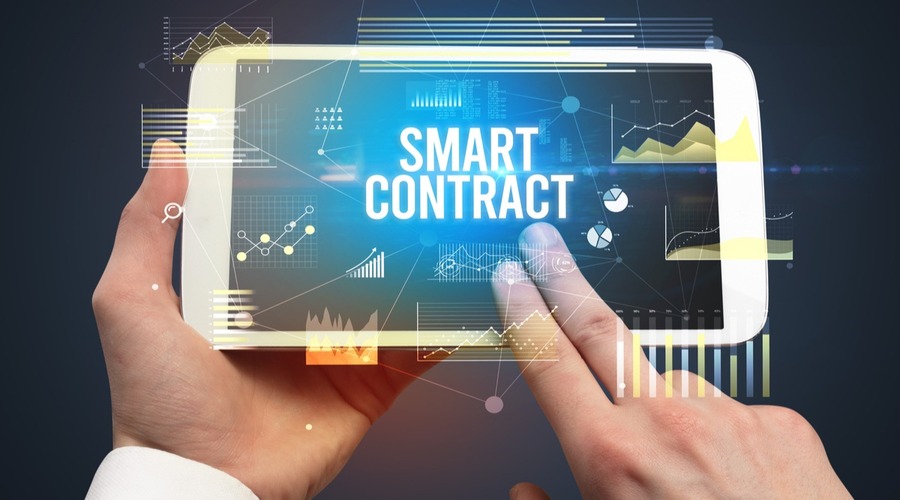Introduction
Blockchain technology has gained significant attention in recent years due to its potential to revolutionize various industries. One sector that can greatly benefit from blockchain implementation is the healthcare industry, specifically in the realm of Electronic Health Records (EHR). EHR systems have the potential to enhance patient care, improve data management, and streamline healthcare processes. In this article, we will explore the use cases of blockchain in electronic health records, highlighting its benefits, challenges, and real-world examples.
Understanding Electronic Health Records (EHR)
Before delving into the use cases of blockchain in EHR, it’s essential to understand what electronic health records are. EHR refers to the digital collection of an individual’s medical history, including diagnoses, medications, lab results, and other relevant healthcare information. Traditional paper-based records have several limitations, such as difficulty in sharing information, potential loss or damage, and privacy concerns. EHR systems aim to overcome these challenges by digitizing and centralizing patient data.
Electronic Health Records (EHR) have transformed the way healthcare providers store and manage patient information. EHR refers to the digital collection of an individual’s medical history, including diagnoses, medications, lab results, and other relevant healthcare information. Unlike traditional paper-based records, EHR systems offer numerous advantages in terms of accessibility, efficiency, and accuracy.
With EHR, healthcare professionals can easily access patient records, providing them with comprehensive and up-to-date information. This accessibility improves the quality of patient care, as healthcare providers can make informed decisions based on the patient’s medical history. EHR also eliminates the need for manual record-keeping and paper-based filing systems, reducing administrative tasks and improving efficiency within healthcare organizations.
Moreover, EHR systems ensure the accuracy of patient information by reducing the risk of errors or misinterpretation that can occur with handwritten records. Data can be entered directly into the system, minimizing the chances of transcription errors and ensuring the integrity of the information. EHR also enables healthcare providers to track patient progress over time, allowing for better monitoring of chronic conditions and the identification of potential health risks.
Overall, the adoption of EHR has revolutionized the healthcare industry by streamlining data management, improving patient care, and enhancing the overall efficiency of healthcare delivery. As technology continues to advance, the capabilities of EHR systems will further evolve, providing even more benefits and opportunities for healthcare providers and patients alike.
The Advantages of Blockchain Technology
Blockchain technology brings several advantages that make it well-suited for the healthcare industry, particularly in managing electronic health records. These advantages include:
- Security and Privacy Blockchain utilizes cryptographic techniques and decentralized consensus to secure data. Information stored on the blockchain is tamper-resistant, ensuring the integrity and confidentiality of sensitive medical records. With blockchain, patients have more control over their data, and healthcare providers can securely share information while adhering to privacy regulations.
- Data Integrity and Immutability Blockchain’s distributed ledger maintains a chronological chain of records, making it difficult to alter or tamper with information stored on the blockchain. This feature ensures the immutability and integrity of electronic health records, reducing the risk of fraudulent activities and data manipulation.
- Interoperability and Data Sharing Interoperability is a significant challenge in healthcare, as different healthcare providers and systems often use incompatible formats and standards. Blockchain can facilitate seamless data exchange and interoperability by providing a standardized, decentralized platform for sharing patient data across various stakeholders, including hospitals, doctors, laboratories, and insurers.

Use Cases of Blockchain in Electronic Health Records
Now let’s explore some specific use cases of blockchain in electronic health records:
- Patient Data Management and Consent Blockchain enables patients to have full control over their health data and grant access to healthcare providers on a need-to-know basis. With blockchain-based consent management, patients can specify who can access their records, ensuring privacy and reducing the risk of unauthorized data sharing.
- Medical Research and Clinical Trials Blockchain can facilitate secure sharing and access to patient data for medical research and clinical trials. Researchers can access anonymized data on the blockchain, allowing them to conduct studies while maintaining patient privacy. Blockchain also ensures the authenticity and reliability of research results.
- Prescription and Medication Management By leveraging blockchain technology, the prescription and medication management process can be streamlined. Blockchain can help prevent prescription fraud, track the supply chain of medications, and ensure accurate medication administration by verifying prescriptions and monitoring drug interactions.
- Insurance and Claims Processing Blockchain can automate insurance and claims processing by securely storing and verifying patient information, policy details, and claims data. Smart contracts can be utilized to automate claims settlement, reducing administrative overhead, minimizing fraud, and improving efficiency.
- Supply Chain Management Blockchain can enhance the transparency and traceability of medical supply chains. By recording every transaction and movement on the blockchain, stakeholders can track the origin, quality, and distribution of medical devices, drugs, and equipment, ensuring authenticity and combating counterfeit products.
- Telemedicine and Remote Patient Monitoring With the rise of telemedicine and remote patient monitoring, blockchain can play a crucial role in securely storing and sharing patient data across different healthcare providers. Blockchain-based platforms can ensure the integrity of remote patient monitoring data, facilitate teleconsultations, and enable seamless information exchange between healthcare professionals.
Challenges and Limitations of Blockchain in EHR
While blockchain offers numerous benefits for electronic health records, there are also challenges and limitations to consider:
- Scalability and Performance Blockchain networks face scalability issues, as the size of the network and the volume of transactions increase. Ensuring high transaction throughput and low latency is crucial for real-time healthcare applications. Scalability solutions, such as off-chain transactions and sharding, are being explored to address this challenge.
- Regulatory and Legal Considerations The implementation of blockchain in healthcare must adhere to various regulations, including data privacy laws such as the Health Insurance Portability and Accountability Act (HIPAA). Complying with these regulations while leveraging blockchain’s decentralized nature requires careful consideration and collaboration between industry stakeholders and regulatory bodies.
- User Adoption and Integration Integrating blockchain into existing healthcare systems and workflows can be challenging. Healthcare professionals and patients need to adapt to new tools and processes, requiring education and training. Seamless integration with legacy systems is crucial for the successful adoption of blockchain in EHR.
Case Studies of Blockchain Adoption in EHR
Several real-world examples demonstrate the successful implementation of blockchain in electronic health records:
- Estonia’s eHealth System Estonia’s eHealth system, built on blockchain technology, provides patients with secure access to their health records. Patients can grant healthcare professionals access to their records, ensuring efficient and personalized care. This system has improved data interoperability and patient-centered healthcare delivery.
- MedRec: Blockchain-Based EHR Management MedRec is a blockchain-based EHR management system developed by researchers at MIT. It focuses on data sharing and patient consent management. MedRec enables patients to securely share their records with healthcare providers and participate in research studies while maintaining control over their data.
- Medicalchain: Secure Sharing of Medical Data Medicalchain utilizes blockchain technology to facilitate secure sharing of medical data between patients and healthcare providers. Patients have full control over their records and can grant access to doctors and specialists as needed. Medicalchain ensures data integrity, privacy, and interoperability.
Future Implications and Opportunities
The use of blockchain in electronic health records holds significant potential for transforming the healthcare industry. As technology advances and scalability challenges are addressed, blockchain can become a cornerstone in ensuring secure and efficient management of patient data. Interoperability between different healthcare systems and improved patient-centric care are among the future implications of blockchain in EHR.
The future implications of electronic health records (EHR) hold significant promise for the healthcare industry. As technology advances, EHR systems will continue to evolve, offering new opportunities and benefits. The seamless interoperability between different healthcare systems will become a reality, enabling secure and efficient data exchange. This will facilitate better collaboration between healthcare providers, leading to improved patient care and outcomes. Furthermore, the integration of emerging technologies like artificial intelligence (AI) and machine learning (ML) with EHR has the potential to revolutionize healthcare delivery, enabling predictive analytics, personalized medicine, and more efficient decision-making. EHR will also play a vital role in medical research, enabling large-scale data analysis and accelerating the development of new treatments and therapies. Overall, the future of EHR is promising, opening doors to innovation and advancements that will shape the future of healthcare.
Conclusion
Blockchain technology offers compelling use cases for electronic health records, addressing critical challenges in healthcare data management. By leveraging blockchain’s security, data integrity, and interoperability features, healthcare providers can enhance patient care, streamline processes, and improve research outcomes. However, challenges such as scalability, regulatory compliance, and user adoption need to be carefully addressed for widespread blockchain implementation in EHR.
FAQs
- How does blockchain ensure the security of electronic health records? Blockchain utilizes cryptographic techniques and decentralized consensus to secure data, making it tamper-resistant and ensuring the integrity and confidentiality of electronic health records.
- Can blockchain address interoperability issues in healthcare? Yes, blockchain provides a standardized, decentralized platform for sharing patient data across different stakeholders, promoting interoperability and seamless data exchange.
- Are there any real-world examples of blockchain adoption in EHR? Yes, Estonia’s eHealth system, MedRec, and Medicalchain are notable examples of blockchain adoption in electronic health records, showcasing improved data sharing, patient consent management, and data security.
- What are the potential challenges in implementing blockchain in healthcare? Challenges include scalability and performance issues, regulatory compliance, and the need for user adoption and integration with existing healthcare systems.
- How does blockchain improve patient consent management? Blockchain enables patients to have control over their health data and grant access to healthcare providers on a need-to-know basis, ensuring privacy and consent management.





